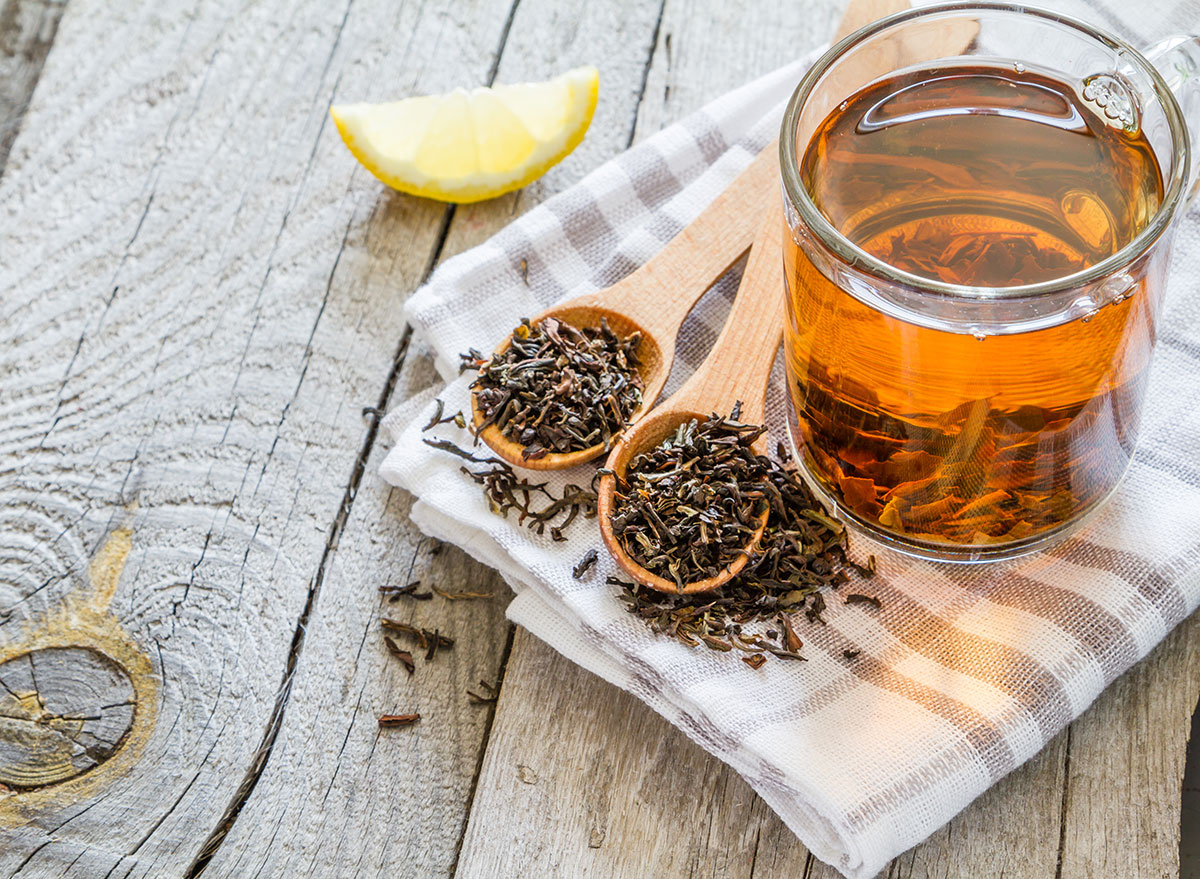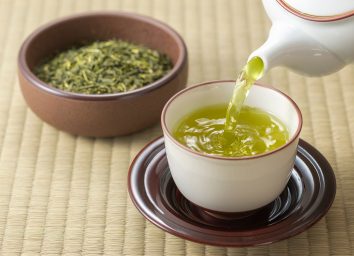One Major Side Effect of Drinking Black Tea

English Breakfast Tea, Earl Grey, Chai—they all have one thing in common. While these popular versions of black tea are distinctly different, there is one particular side effect of drinking black tea that you should know about. Don't worry—it's all good news. Drinking black tea can decrease inflammation and reduce your risk of developing chronic conditions. Now if that doesn't get your tea kettle going, we're not sure what else will.
Here's how drinking black tea can reduce your inflammation, and for even more helpful tips, be sure to check out our list of The 7 Healthiest Foods to Eat Right Now.
Drinking black tea can reduce the risk of chronic disease.
According to a study published by the International Journal of Health Sciences, black tea contains an antioxidant called polyphenols. These polyphenols include a group of catechins and flavonoids that have been scientifically proven to protect oneself from developing chronic diseases.
Polyphenols also are key for reducing inflammation, according to the International Journal of Biomedical Science. They counteract oxidative stress in the body, which that stress has proven to be a major part of developing chronic diseases. The study states some of the most prominent chronic diseases polyphenols can help prevent including "cancer, autoimmune disorders, cardiovascular, and neurodegenerative diseases."
Along with the antioxidants in teas, another study published by the journal Nutrition Research also showed how black tea can help improve blood cholesterol levels (increasing "good" HDL cholesterol and decreasing "bad" LDL cholesterol) which is key for reducing the risk of heart disease or obesity.
How much black tea is too much?
While science does show that drinking black tea on a regular basis can significantly improve the body through antioxidants and decrease the risk of chronic disease, it is important to note that black tea is a caffeinated drink. This means there should be a limit to how much black tea is consumed in a day. But don't fret—the limit is still pretty high.
According to the Mayo Clinic, you are allowed up to 400 milligrams of caffeine a day before the caffeine creates adverse effects on the body (increased heart rate, caffeine "jitters", etc). Typically a cup of black tea has around 50 milligrams of caffeine in it (depending on the type and how long you steep it for), which means you are allowed up to eight 8 oz. cups of black tea a day.
Now, will you drink that much? Maybe not so. But it's still good to know that there is a limit to how much black tea you should be consuming.
Another key thing to point out is how you prepare your black tea. While some people do enjoy drinking black tea without anything in it, others enjoy taking their tea with cream and sugar. It can be easy to overdo it on both of these things, so be sure to portion out what you add in your tea so you're tea will have you feeling energized instead of sluggish from the additives.
So what's stopping you from brewing a pot right now? And don't worry, if you're more of a green tea drinker, there's some good news for you, too.








